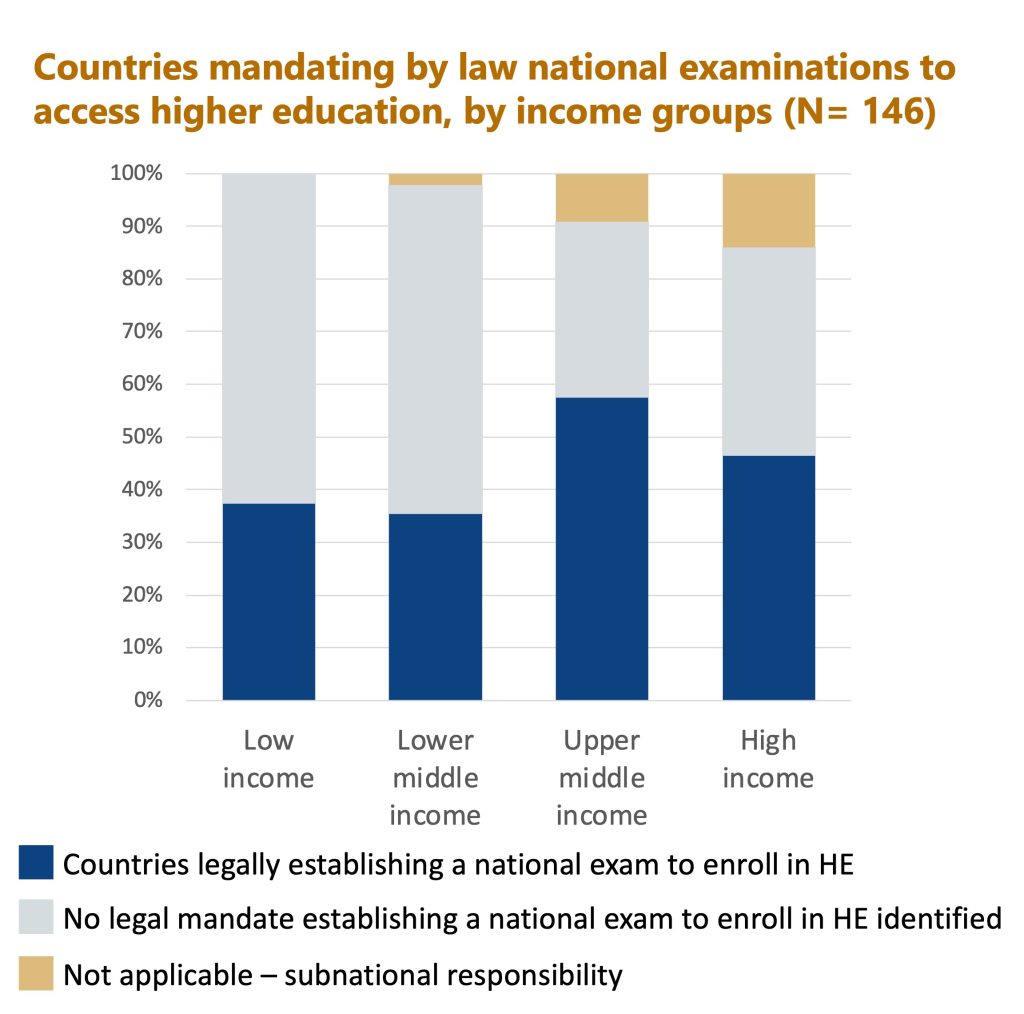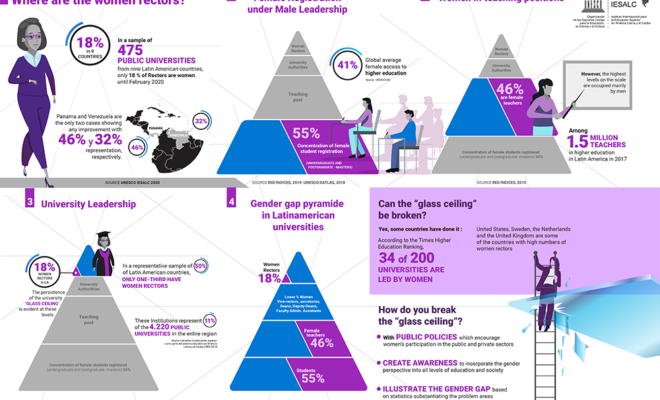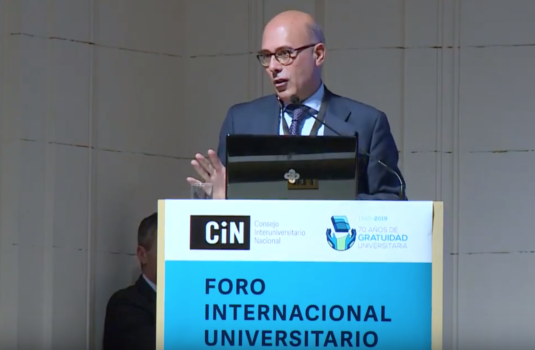Unlocking insights on national exams to access higher education worldwide

National exams to access HE can serve as a uniform means of assessing students’ knowledge and skills, setting minimum requirements, and enhancing public accountability. Yet their implementation is also costly and complex. The new Policy Insight explores this topic across 146 countries, differentiating countries that enforce mandatory national exams to access HE and those where such legislative requirements were not identified.
This Insight reveals that 44% of the countries documented in the HE Policy Observatory mandate all prospective students to pass a national examination for HE enrollment, particularly concentrated in the regions of Central and Eastern Europe and Central Asia. Looking by world regions and income groups, the data shows diverse patterns, including a positive relationship between income levels and the administration of national exams.

This global overview of national exams for HE access offers policymakers valuable insights to identify promising practices from countries with similar interests and needs and engaging in international collaboration to better understand the role of national exams in fostering quality and equity in HE. Furthermore, it provides room for researchers to delve deeper into the underlying reasons behind mandating national exams in different countries and their impact on key objectives such as ensuring quality standards, upholding the principles of fairness or monitoring national education performance.
Check out the UNESCO IESALC Policy Insight on national exams to access HE here.
RELATED ITEMS








